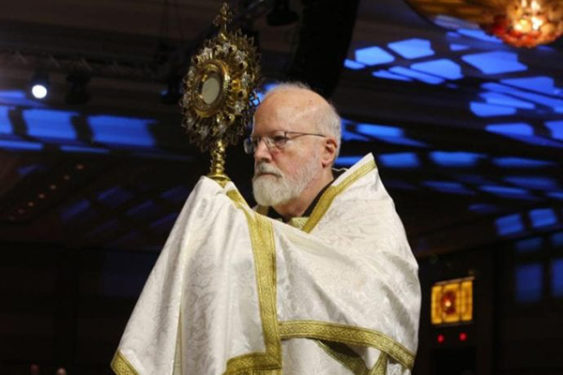
By Charles Collins
(Crux) — If you ask any Catholic theologian what the most important part of Christian life is, they’ll tell you the Eucharist.
Which is why the U.S. bishops must feel like they have been double punched by new data from the Pew Research Center.
On July 23, the prestigious polling firm released a new report – “What Americans Know About Religion” – that found that half of Catholics in the United States don’t know the Catholic Church teaches the Eucharist is the actual Body and Blood of Jesus Christ.
Most of the other half thought the Church taught the Eucharist was just a symbol of Christ’s body, although 4 percent said they were unsure what the Church taught.
That was the first punch.
This week, Pew delivered the second – it reported that only one-third of Catholics believe that the Eucharist is the actual Body and Blood of Jesus Christ.
It doesn’t take a math degree to figure out what that means, although Pew does helpfully fill in the blanks: “One-in-five Catholics (22 percent) reject the idea of transubstantiation [the technical term for the bread and wine becoming the Body and Blood of Christ], even though they know about the Church’s teaching.”
(I doubt the bishops will be heartened by the fact that the poll showed that three percent of Catholics “profess to believe in the real presence of Christ in the Eucharist despite not knowing the Church’s teaching on transubstantiation.”)
It brings to mind the quote from the mid-20th century American writer Flannery O’Connor: “Well, if it’s a symbol, to hell with it.”
O’Connor’s quote came from a letter describing a conversation about the Eucharist with non-Catholics, where a friend said she thought the Eucharist was a “pretty good” symbol.
Of course, it could be easy to ascribe this to a general ignorance of their faith by self-described Catholics. The Pew Research Center even acknowledges that practicing Catholics are more likely to believe Church teaching.
“About six-in-ten (63 percent) of the most observant Catholics – those who attend Mass at least once a week – accept the Church’s teaching about transubstantiation. Still, even among this most observant group of Catholics, roughly one-third (37 percent) don’t believe that the Communion bread and wine actually become the body and blood of Christ (including 23 percent who don’t know the Church’s teaching and 14 percent who know the Church’s teaching but don’t believe it). And among Catholics who do not attend Mass weekly, large majorities say they believe the bread and wine are symbolic and do not actually become the body and blood of Jesus,” the organization states.
But something else could be at play, which is indicated by the response to the other question on the survey about a particular Catholic belief: Just over 70 percent of Catholics knew that Purgatory is where the souls of those who have died undergo purification before they enter heaven.
This, by the way, wasn’t a true/false question; it was multiple choice – the other options were an offering made during confession, purification process made during self-reflection, and where souls go for eternal punishment.
In other words, significantly more Catholics know what the Church teaches about Purgatory than what the Church teaches about the Eucharist, which the Catechism calls “the source and summit of the Christian life.”
Why?
Probably because Purgatory is distinctively “Catholic” – there aren’t a lot of competing ideas on Purgatory from other Christian denominations to confuse the issue.
Most Catholics in the United States are friends and colleagues with Protestants who practice the Lord’s Supper, and most of them believe it is purely symbolic.
The United States also has few cultural activities to reinforce belief in the Real Presence among nominal Catholics – Eucharistic processions through the city streets and public holidays on Corpus Christi in Catholic-majority countries can be a reminder of the Church’s teaching on the Eucharist even for those who actively avoid walking through the door at their local parish.
This can be compounded by what I call the Rex Mottram syndrome – named for the character in Evelyn Waugh’s Brideshead Revisited. A prospective convert (for the sake of marriage), Mottram confounds his priest by saying, and I paraphrase: Just tell me what I need to do to be Catholic, and I will do it.
Although Pew gives the numbers of those who know the Church teaching and reject it, it doesn’t ask how many of those who don’t know the Church teaching on the Eucharist correctly, but would change their own views to bring them in line with the Church.
In any event, these caveats will bring little comfort to U.S. Church leaders – After all, the Catechism says, “The other sacraments, and indeed all ecclesiastical ministries and works of the apostolate, are bound up with the Eucharist and are oriented toward it.”
The U.S. bishops’ conference meets in November for their fall assembly. They will have an important topic to talk about.
